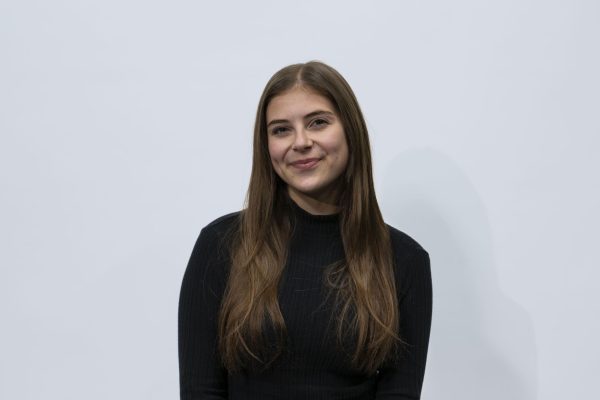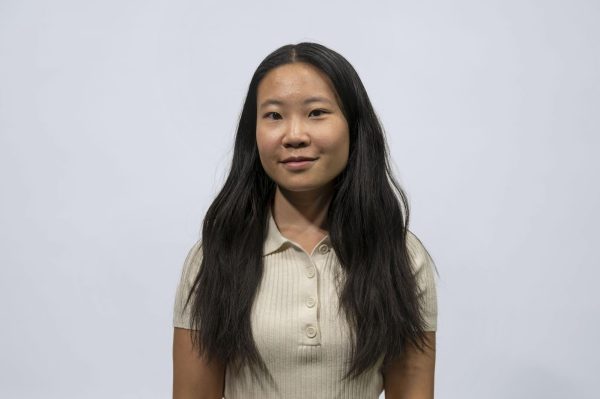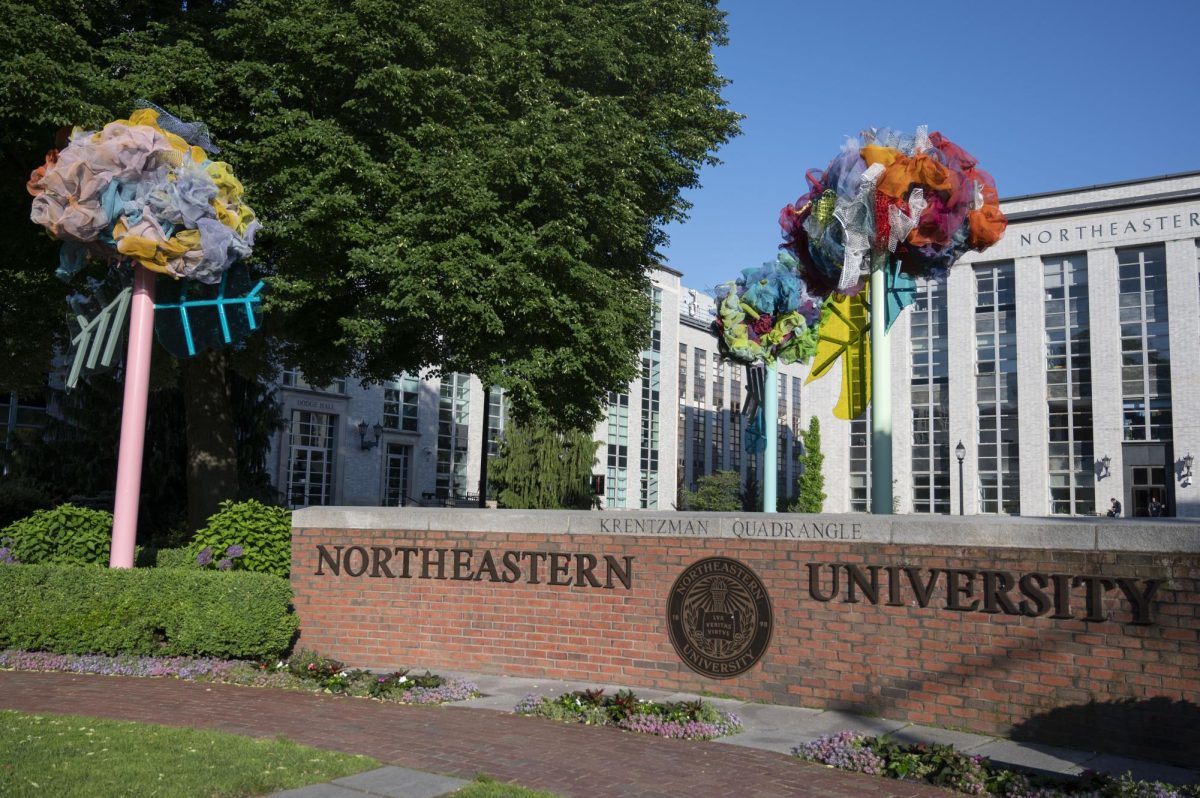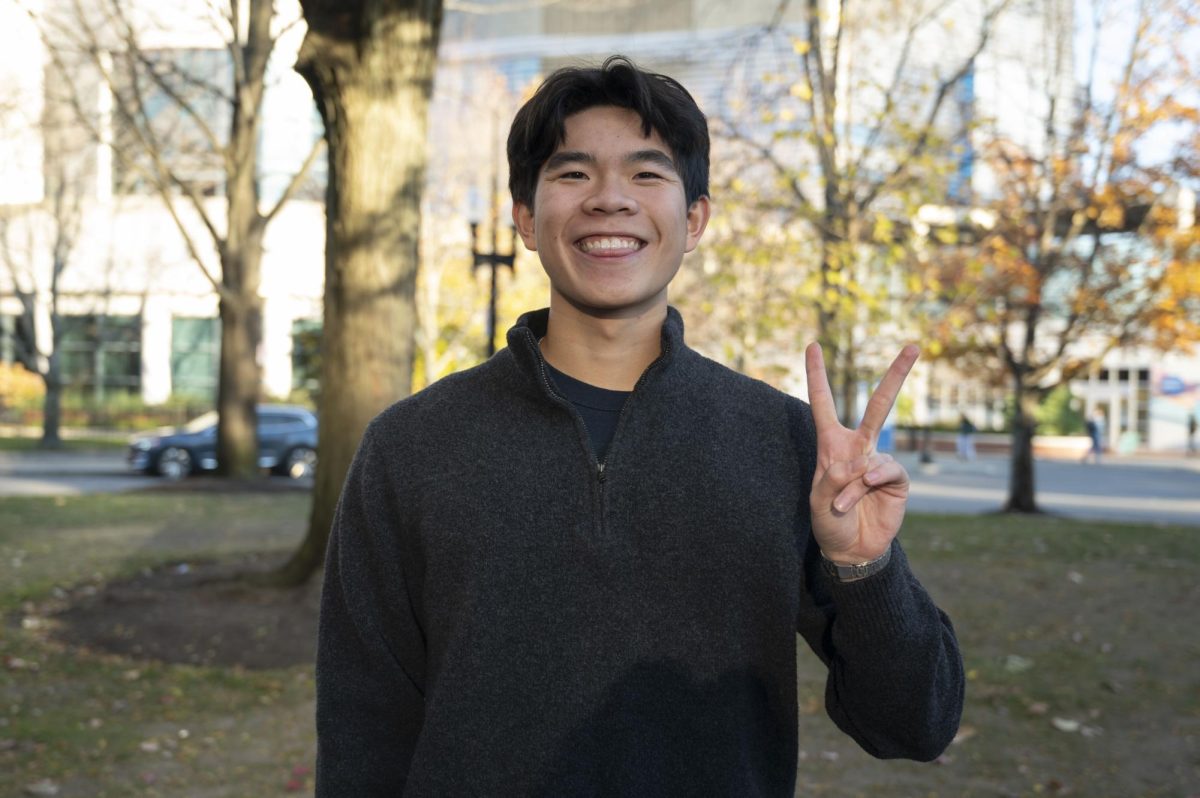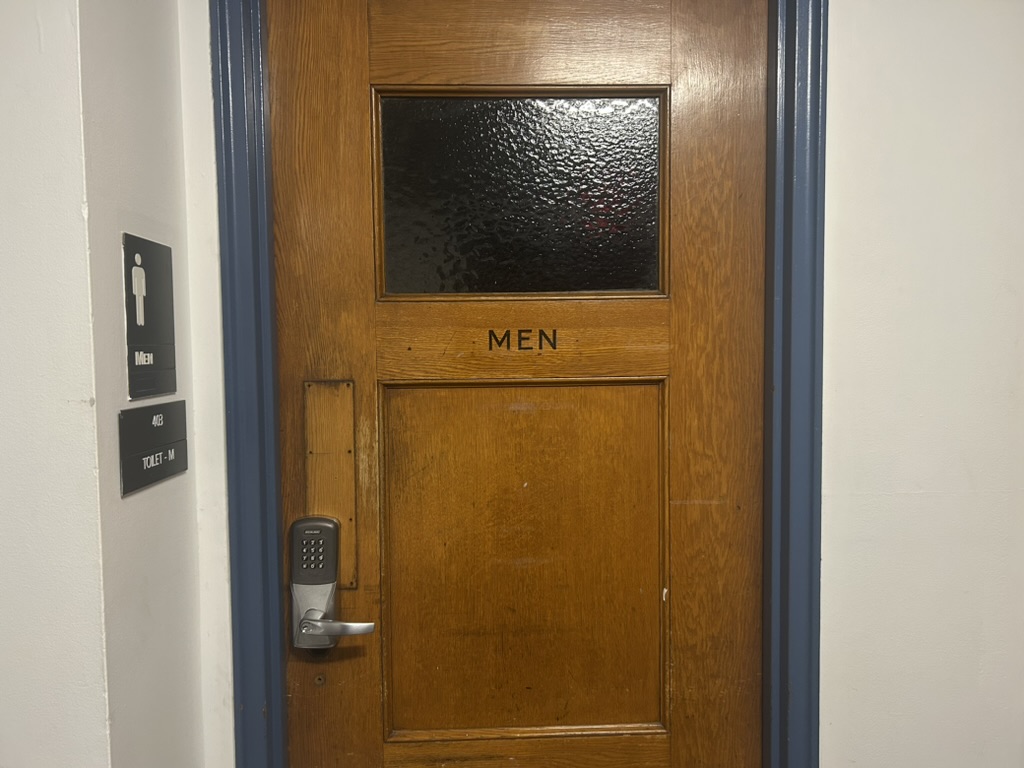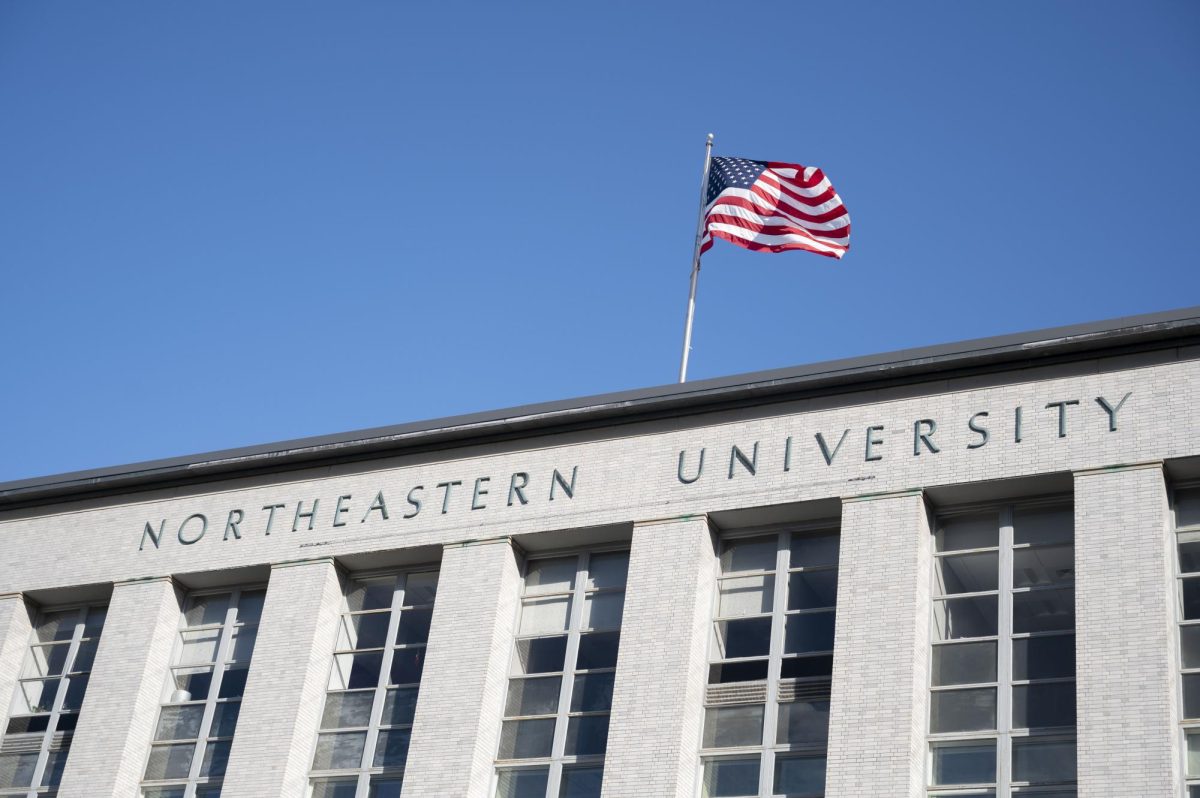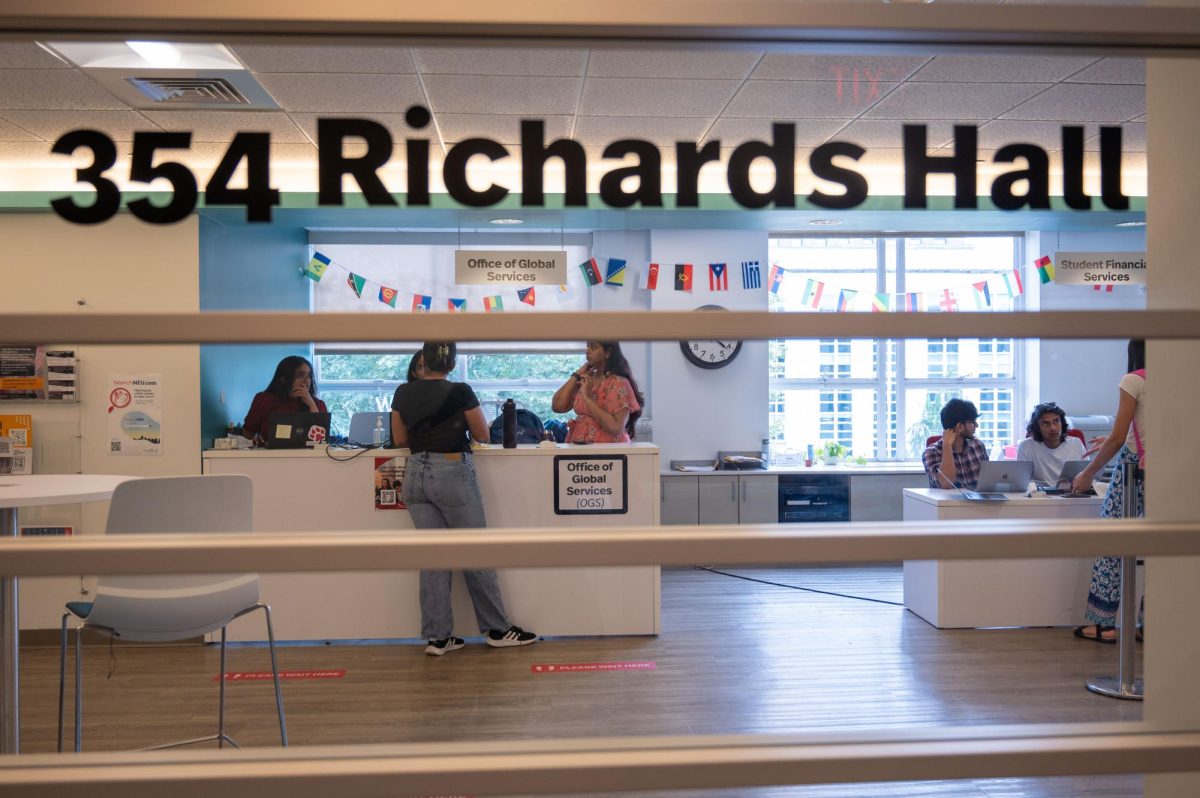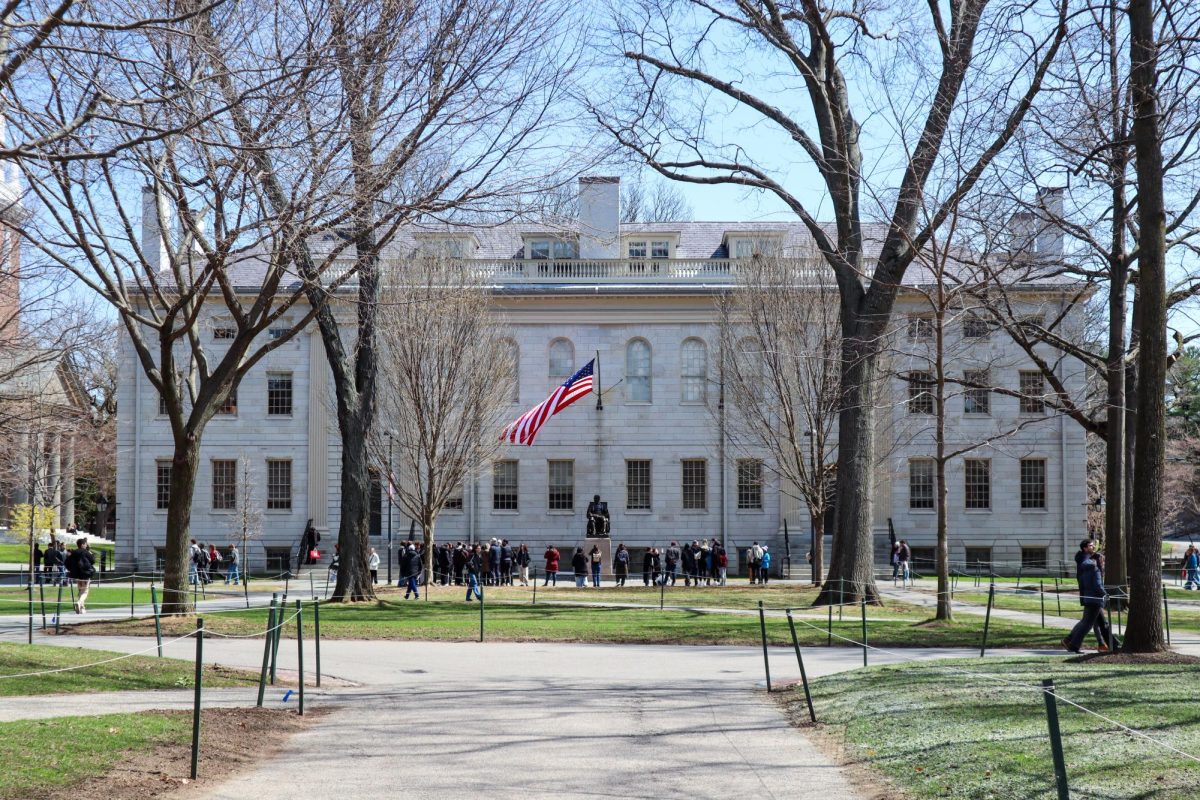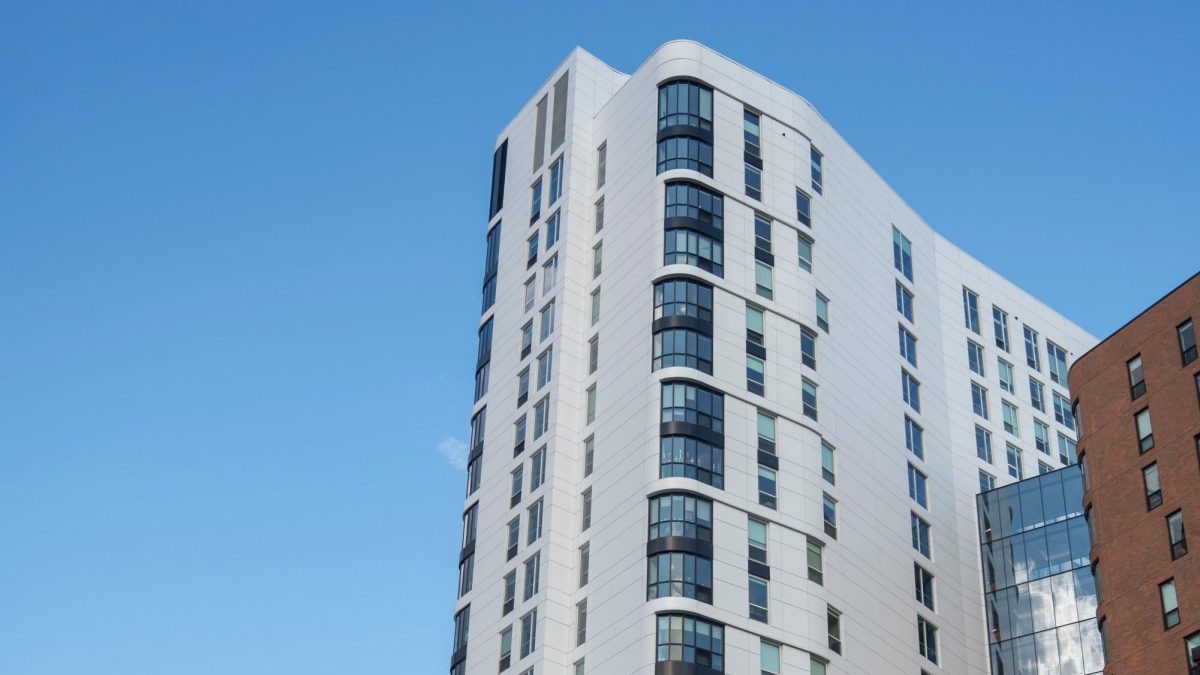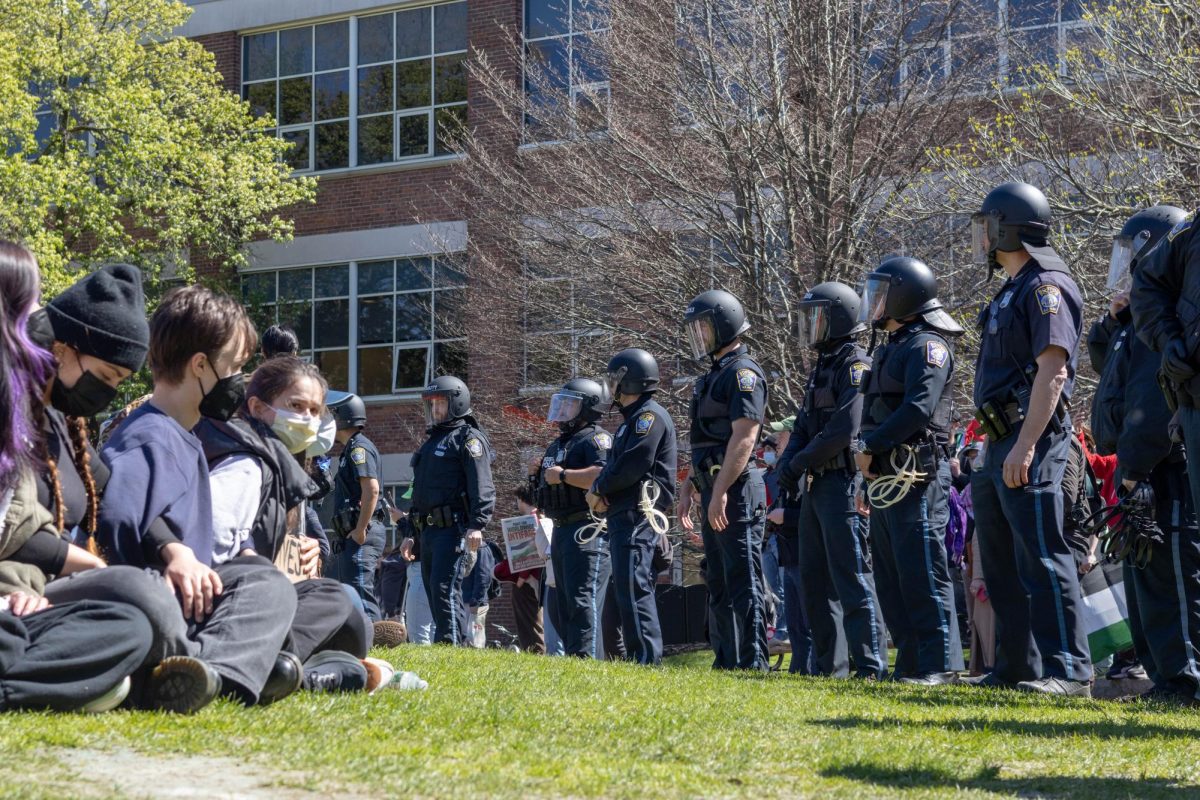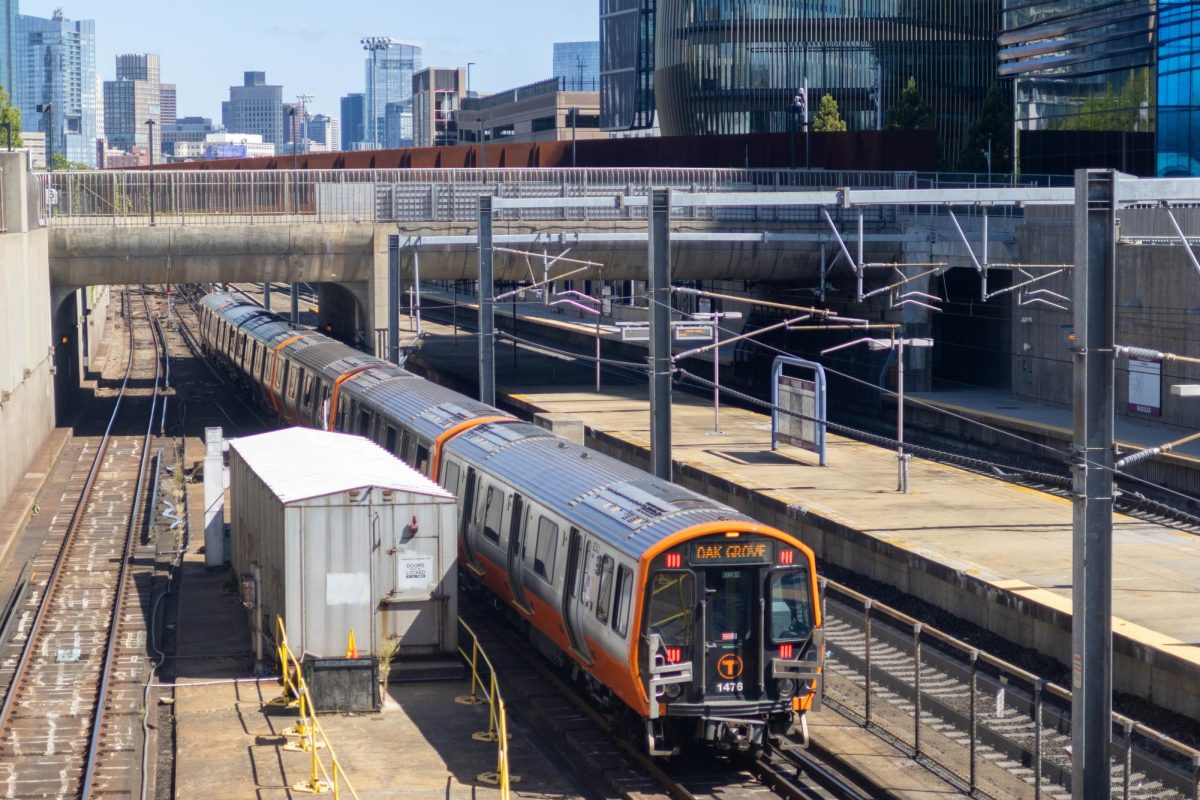Picture this: It’s your very first college move-in day. Nerves are at an all-time high and an endless stream of unknowns are circulating in your mind. Should I have left the stuffed animals at home? Will my new roommate have any weird habits? Will I find my people here?
Prior to college, I had a certain image of what I expected freshman year to look like. Movies always promise fantasies of forever friends made from leaving the door open to your cramped residence hall room. I was anxiously anticipating the lifelong friendships that would form and the core memories that would be made.
But when I entered through the revolving doors of the Sheraton Boston Hotel at 60 Belvidere St., looking around at the impatient, freshly-retired high schoolers waiting for their parents to check in, I knew my experience was not going to emulate what I had envisioned.
When I was accepted to Northeastern’s N.U.in program, London was the only location that suited my major, as I was in the College of Social Sciences and Humanities as a journalism and English combined major. However, by the time I committed to the university, the spots for London were full. My major aligned with only one other location: Boston.
When the N.U.in program was founded in 2007, it was meant to provide a study abroad experience for first-years before they join the rest of their class in Boston in the spring.
However, the pandemic caused universities in Boston and across the country to turn to housing students in hotels as an attempt to mitigate the spread of the virus in residence halls’ close quarters. Northeastern placed students in the Westin, Sheraton and Midtown hotels.
Following the peak of the pandemic, Northeastern combated the overwhelming amount of incoming students by housing students in all three of these locations, dedicating the Westin and Sheraton to N.U.in Boston students.
So what exactly was N.U.in Boston? As Ken Henderson, chancellor and senior vice president for learning, wrote in the 2020 “Welcome to N.U.in Boston” handbook, “We recognize that college life will be different from what you had imagined. … Academics for N.U.in Boston will be delivered through Northeastern’s Hybrid NUflex learning model, allowing you to engage in courses both remotely and in person. … Through new technologies and reimagined housing and dining experiences, we are committed to promoting a safe and productive environment for all.”
N.U.in Boston offered group excursions to go apple picking or visit Salem and community-building activities like “family dinners” with students on your floor and your Boston Coordinator, or BC, who was essentially a resident adviser with a different title. Events like these were advertised in weekly newsletters like this one.
The 2020 handbook advertised N.U.in Boston as an “exciting opportunity for students to engage with Northeastern peers while experiencing the heart of Back Bay Boston.”
Despite these promising advertisements, N.U.in Boston students beg to differ. Leave it to Reddit for students’ unfiltered, unapologetic opinions. When a prospective N.U.in student was torn between Boston or an abroad experience, they asked, “What’s the deal with NUin?”
One user replied, “Why would anyone wanna go to nuin [sic] boston when the school itself is in boston already?”
As another user put it, “campus was dead regardless of covid. I would try to actually go abroad if your [sic] in NUin or else its [sic] just not as worth it. The people who go abroad make real life connections to other peers and always have a great time.”
I agree with the sentiments expressed by these users — the experience was not worth it.
I would trade in the free excursion to Plymouth for straight-A grades to count on my transcript instead of the pass/fail transfer credits I was allotted. I would swap out karaoke night led by the BCs in the Sheraton lobby for regular semester tuition rather than confusing additional N.U.in fees. I would replace the unlimited CharlieCard included with the program for the convenience of a dining hall right outside my residence hall, instead of traversing the mile to campus.
Whenever I complained about the cards I was dealt to someone outside of my program, their immediate response was, “But the hotel is so nice!”
It’s true, my roommate and I had full-size beds and our own bathroom with a periodic cleaning service. We had a gorgeous view of the city from the 12th floor and access to the hotel gym and pool.
However, I still would’ve given up all that easily to feel less isolated from campus, to have confidence in my sense of place and to know that I truly belonged at the university I was theoretically a part of.
When I made friends with a girl who lived in an on-campus residence hall, I observed wide-eyed the experience I longed for. My friend’s neighbors were coming in and out of her room to borrow a top or to ask for a snack. She and her roommate could name almost everyone on their floor. The whole group would study at Snell Library together, take over a table at the International Village dining hall and go to Northeastern hockey games together, chanting in unison.
That was what college was about, I thought to myself. Not me crouching over my laptop in my hotel room with a salad purchased from the lobby café because the weather was too frigid to study on campus and trek 15 minutes back to the Sheraton in the evening.
Joining clubs and student organizations was the only solace I found in bridging the physical and social gap I felt from campus. Clubs should be a supplement to your sense of belonging on campus — not the whole reason for it.
My roommate and I had the choice to guarantee our placement in the Sheraton again for the spring semester or take a chance on the housing lottery with the hopes of receiving on-campus housing. Just our luck — we were moved out of the Sheraton and into the Westin, an 18-minute walk away from campus in the depths of winter, where we felt the isolation tenfold.
Sarah Pyrce is a fourth-year communications studies major. She can be reached at pyrce.s@northeastern.edu.
The Huntington News is dedicated to serving the Northeastern University community with original, professional reporting and creating an environment in which student journalists can learn from one another. Support an independent, free press at Northeastern University with your donation today.




